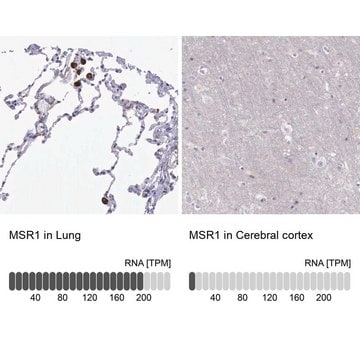MABS36
Anti-ODC1 Antibody, clone CPTC-ODC1-2
clone CPTC-ODC1-2, from mouse
Sinónimos:
ornithine decarboxylase 1, ornithine decarboxylase
About This Item
Productos recomendados
biological source
mouse
Quality Level
antibody form
purified immunoglobulin
antibody product type
primary antibodies
clone
CPTC-ODC1-2, monoclonal
species reactivity
human
technique(s)
western blot: suitable
isotype
IgG2aκ
NCBI accession no.
UniProt accession no.
shipped in
wet ice
target post-translational modification
unmodified
Gene Information
human ... ODC1(4953)
General description
Immunogen
Material obtained from the National Cancer Institute’s Clinical Proteomic Technologies for Cancer (CPTC) program.
Application
Signaling
Quality
Western Blot Analysis: 10 µg/mL of this antibody detected ODC1 on 10 µg of MCF-7 cell lysate.
Target description
Physical form
Storage and Stability
Analysis Note
MCF-7 cell lysate
Other Notes
Disclaimer
Not finding the right product?
Try our Herramienta de selección de productos.
Storage Class
12 - Non Combustible Liquids
wgk_germany
WGK 1
flash_point_f
Not applicable
flash_point_c
Not applicable
Certificados de análisis (COA)
Busque Certificados de análisis (COA) introduciendo el número de lote del producto. Los números de lote se encuentran en la etiqueta del producto después de las palabras «Lot» o «Batch»
¿Ya tiene este producto?
Encuentre la documentación para los productos que ha comprado recientemente en la Biblioteca de documentos.
Nuestro equipo de científicos tiene experiencia en todas las áreas de investigación: Ciencias de la vida, Ciencia de los materiales, Síntesis química, Cromatografía, Analítica y muchas otras.
Póngase en contacto con el Servicio técnico






